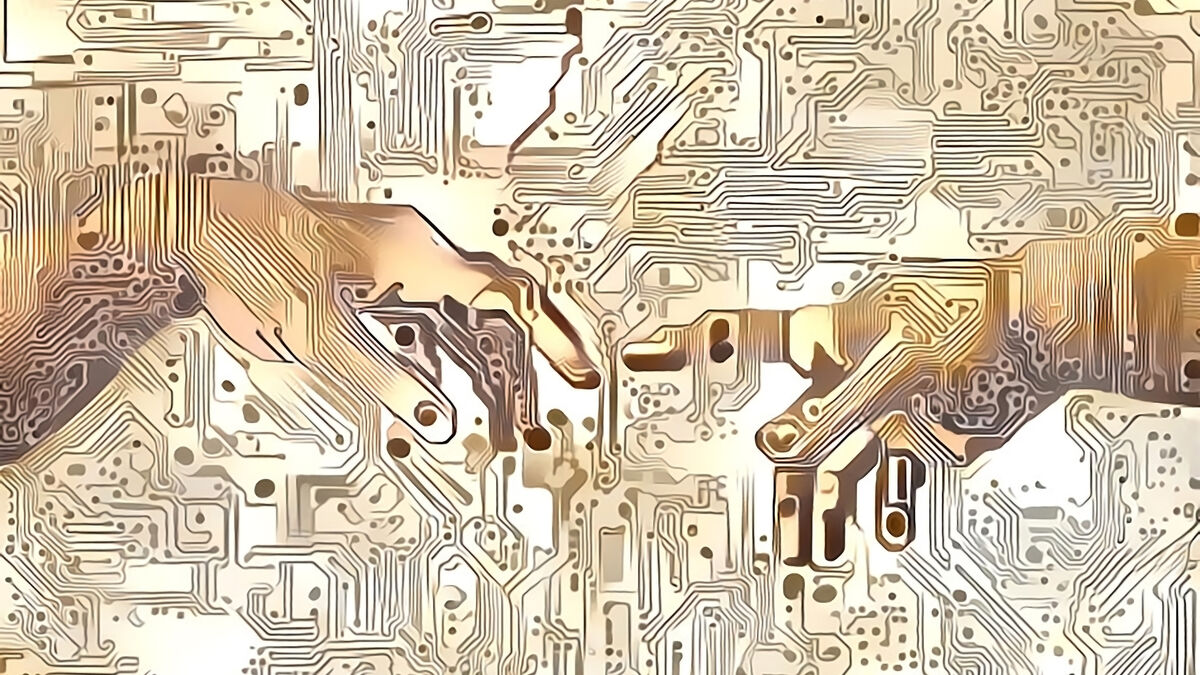Compassion Argument
The Compassion Argument (formerly known as the Benevolence Argument and the Charity Argument) is part of the New God Argument. It is a logical argument for trust that superhumanity probably would be more compassionate than we are. The basic idea is that humanity probably will continue to increase in decentralized power, so it probably will destroy itself unless it increases in compassion. If we trust in our own superhuman potential, we should trust that superhumanity would be more compassionate than we are.
This is a list of articles that Lincoln Cannon has written about the Compassion Argument of the New God Argument. A full archive of all articles that Lincoln has published since 2005 is also available. You may also search for articles and other content that's available on any of Lincoln's websites.
-

God the Cosmic Host, and AI Creation
It’s getting harder to be an atheist. A quarter century ago, it wasn’t so hard. But things have changed – quite dramatically. It’s become increasingly difficult to remain an atheist while coherently aspiring to a thriving future for humanity. Now keep in mind that I’m not talking about atheism toward ... -

Why Decentralization Is Essential to Human Thriving
Decentralization of power, whether we characterize that power as technological or otherwise, is essential to increasing the probability of a thriving human (or superhuman) future. There’s a line of reasoning that persuaded me of this conclusion. It consists of three steps. Before I share the three steps, I should explain ... -

Jesus Christ in the New God Argument
After reading some of my recent posts about the New God Argument, a Transhumanist friend wrote to me with some questions about the nature of God. He was raised as a Christian. And he’s been wondering how God as described in the New God Argument relates to God as described ... -

New God Argument Version 3.4
On Saturday 3 August, I presented the New God Argument at the Sunstone conference in Salt Lake City. As part of the presentation, I simplified the formulation of the Compassion Argument slightly. And I spent more time than usual elaborating on how the first assumption of the Compassion Argument arises ... -

The Semi-Orthogonality Hypothesis
In his Orthogonality Thesis, Nick Bostrom proposes that “intelligence and final goals are orthogonal: more or less any level of intelligence could in principle be combined with more or less any final goal.” However, there’s a problem hinted at by the combination of “orthogonality” and “more or less.” Nick acknowledges ... -

New God Argument Version 3.0
Below is an experimental formulation (version 3.0) of the New God Argument. Those familiar with previous formulations of the argument will note the following changes. First, I combined all assumptions about human futurity into the Faith Assumption. Second, I dropped the Angel Argument because its conclusion is redundant with that ... -

Evil Gods will rise and fall they must
Technology is power, which may be used for good or evil. And technological trends increasingly suggest our future will include technology and its associated power beyond our present ability to imagine. The Benevolence Argument of the New God Argument concludes that any posthumanity, radically creative to the point of metacreativity ... -

Gods of suffering and oppression
In response to the New God Argument, an anonymous commenter requested my thoughts on the following David Pearce quote. David is a Transhumanist philosopher who I respect a great deal, despite some differences of perspective. He calls into question the benevolence of posthumans: “Of all the immense range of alternative ... -

Can non-benevolent super-intelligence persist?
Recently, Joshua Fox gave an insightful presentation on why “super-intelligence does not imply benevolence.” Thanks to Michael Anissimov for bringing this to my attention. Joshua identifies two kinds of benevolence: instrumental and axiomatic. And he argues that neither is a necessary outcome for super-intelligence. He observes that instrumental benevolence results ... -

Perspective on the Benevolence Argument
On the Mormon Transhumanist Association Response blog, Vblogger has commented on the New God Argument. Below are my thoughts in response to those comments. I already published a first response, a second response, a third response, and a fourth response to other comments on her blog. The question of whether ... -

New God Argument Version 2.0
Below is the revised summary of the New God Argument, as presented today at the annual meeting of the Society for Mormon Philosophy and Theology. Those who are familiar with the argument will recognize that we renamed the Charity Arguments to “the Benevolence Argument” and focused in on one of ... -

New God Argument Version 1.0
Abstract: If basic life forms are probable then we should trust that advanced civilizations are probable. If any advanced civilization probably has increased in destructive capacity faster than defensive capacity, and if any advanced civilization probably creates many worlds like those in its past, then we should trust that an ...